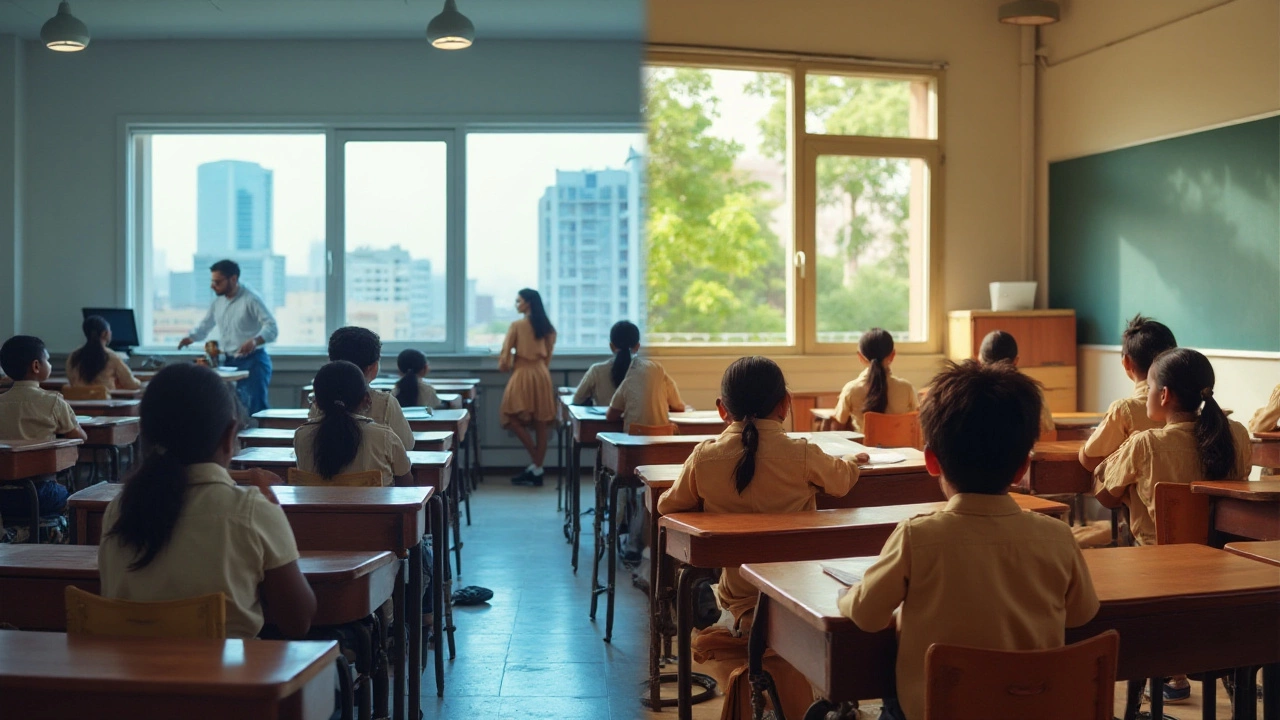Dubai Education: Your Quick Guide to Schools, Universities, and Student Life
If you’re thinking about studying in Dubai, you’ve landed in the right spot. The city blends modern infrastructure with a multicultural vibe, and its education system reflects that mix. From British curriculum schools to world‑class universities, Dubai offers options for every age and budget.
What Makes Dubai’s Schools Stand Out?
Most expatriate families choose private schools because they follow familiar curricula – British, American, Indian, or the International Baccalaureate. These schools often have state‑of‑the‑art facilities, small class sizes, and teachers from abroad. Tuition can be high, but many schools provide scholarships or sibling discounts. If you’re looking for a budget‑friendly option, the Dubai Knowledge and Human Development Authority (KHDA) rates schools on a six‑point scale, so you can spot quality without guessing.
Another perk is the focus on extracurriculars. Sports, robotics clubs, and language programs are built into the daily schedule, giving students a well‑rounded experience. Parents also appreciate the strong emphasis on safety and student welfare – schools are required to have clear policies on emergencies and child protection.
Universities: From Local Campuses to Global Branches
Dubai’s higher‑education scene is growing fast. You’ll find branches of the University of Wollongong, Heriot‑Watt, and Middlesex University, along with local institutions like the University of Dubai. These campuses often offer the same degrees you’d get back home, but at a fraction of the travel cost.
Admission criteria are straightforward: you need a recognized high‑school diploma, a decent GPA, and sometimes an English test score (IELTS or TOEFL). Many universities also accept the UAE’s national qualification, the UAE Secondary School Certificate. If you’re an international student, you’ll need a student visa, which the university typically helps you obtain.
Tuition varies widely. A British‑style bachelor’s degree can cost between AED 30,000 and AED 80,000 per year. Scholarships are available for high‑achieving students, and some employers sponsor further studies as part of employee development.
Living in Dubai while you study is easier than many think. Public transport is expanding, with a modern metro system that connects most campuses. Renting a shared apartment near the university can cost around AED 2,500‑3,500 per month, and many student housing options include utilities and internet.
Don’t forget to explore the city’s cultural side. Museums, desert trips, and the famous Global Village give you a taste of the region’s heritage. Plus, Dubai’s safety record lets you focus on studies instead of worrying about everyday risks.
In short, Dubai’s education system offers quality, diversity, and opportunities for personal growth. Whether you’re a parent looking for the best school for your child or a student hunting a university that matches your career goals, the city has something to fit. Do your research, check KHDA ratings, and plan your budget early – the right choices will pay off in a vibrant learning experience and a global network of friends and professionals.
Dubai vs. India: Comparing CBSE Education Systems
The article explores the differences between Dubai and India's CBSE education systems. It discusses the unique features, benefits, and challenges of each educational setup. It aims to provide insights to parents and educators considering the education standards in both locations. Readers will gain an understanding of the cultural and infrastructural impacts on education in these regions. This comprehensive guide helps in making informed decisions about children's schooling.
